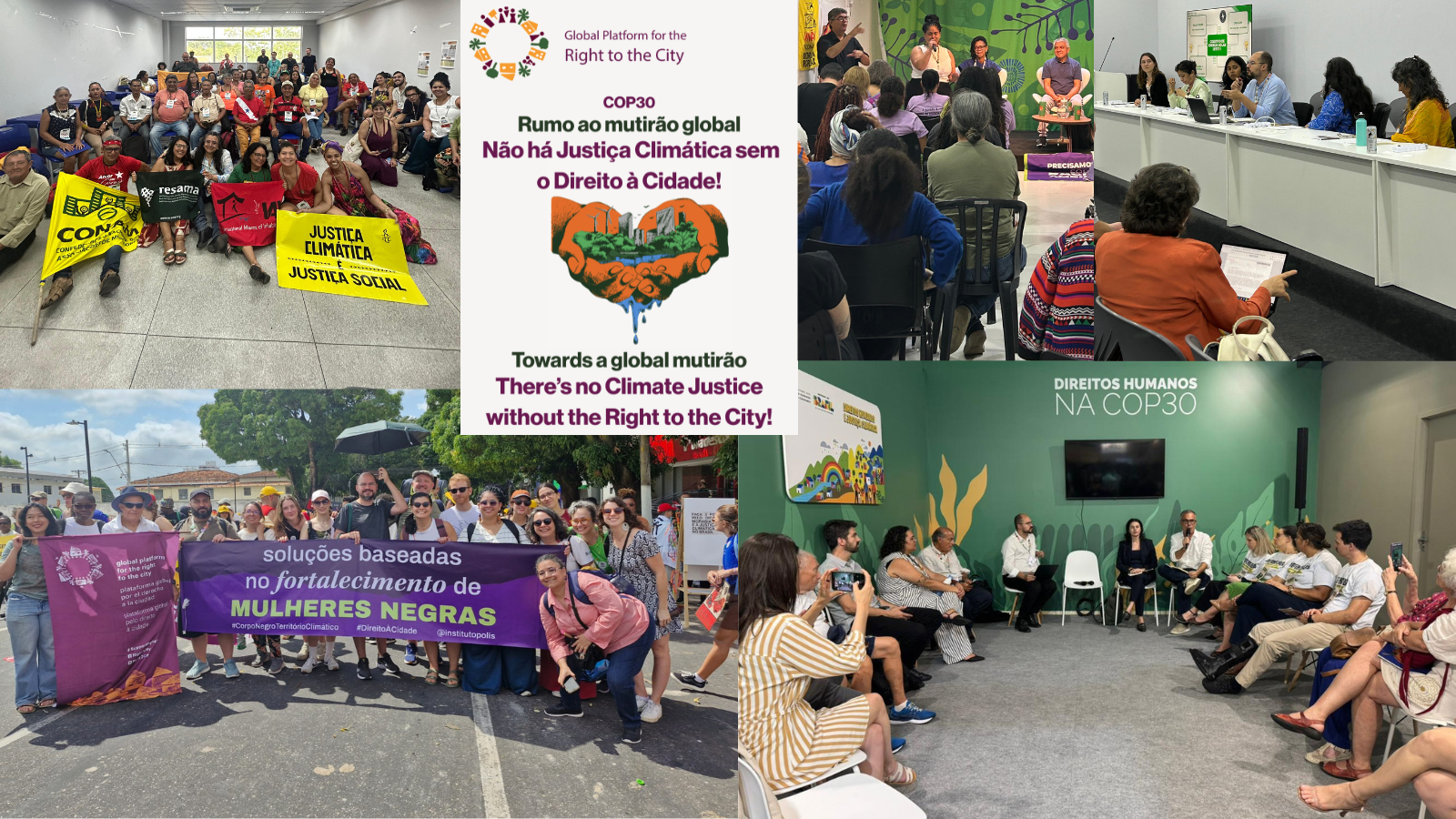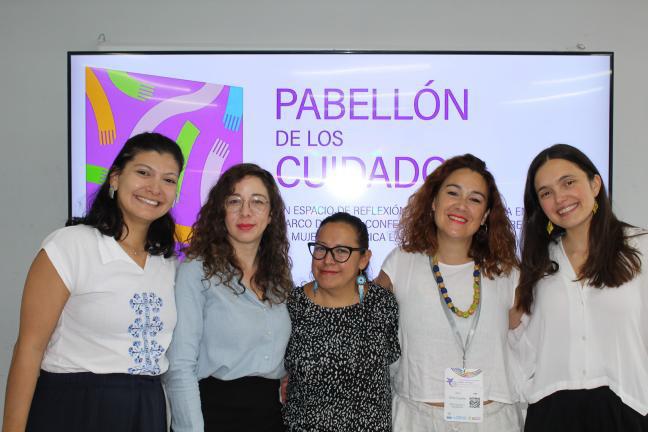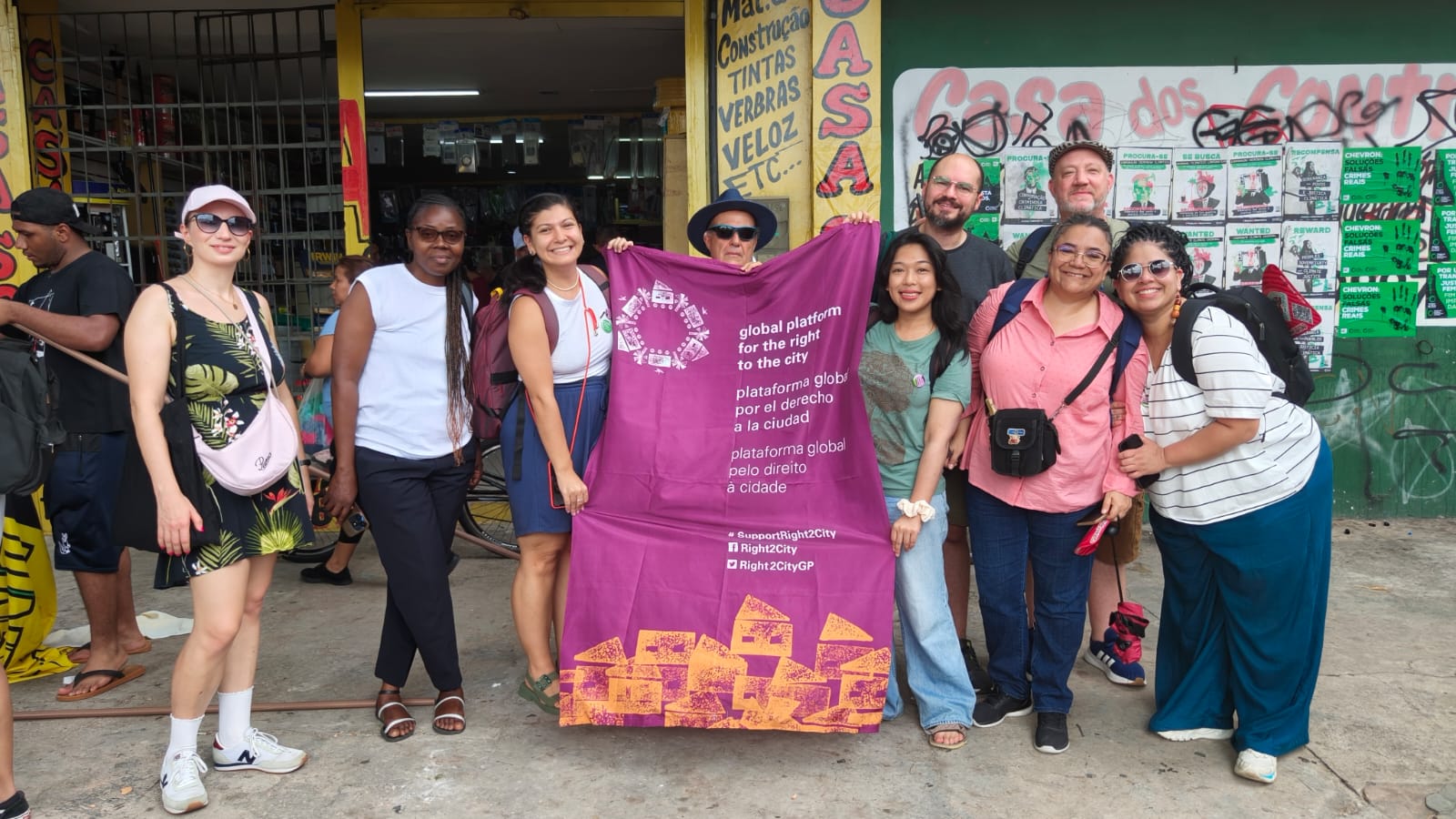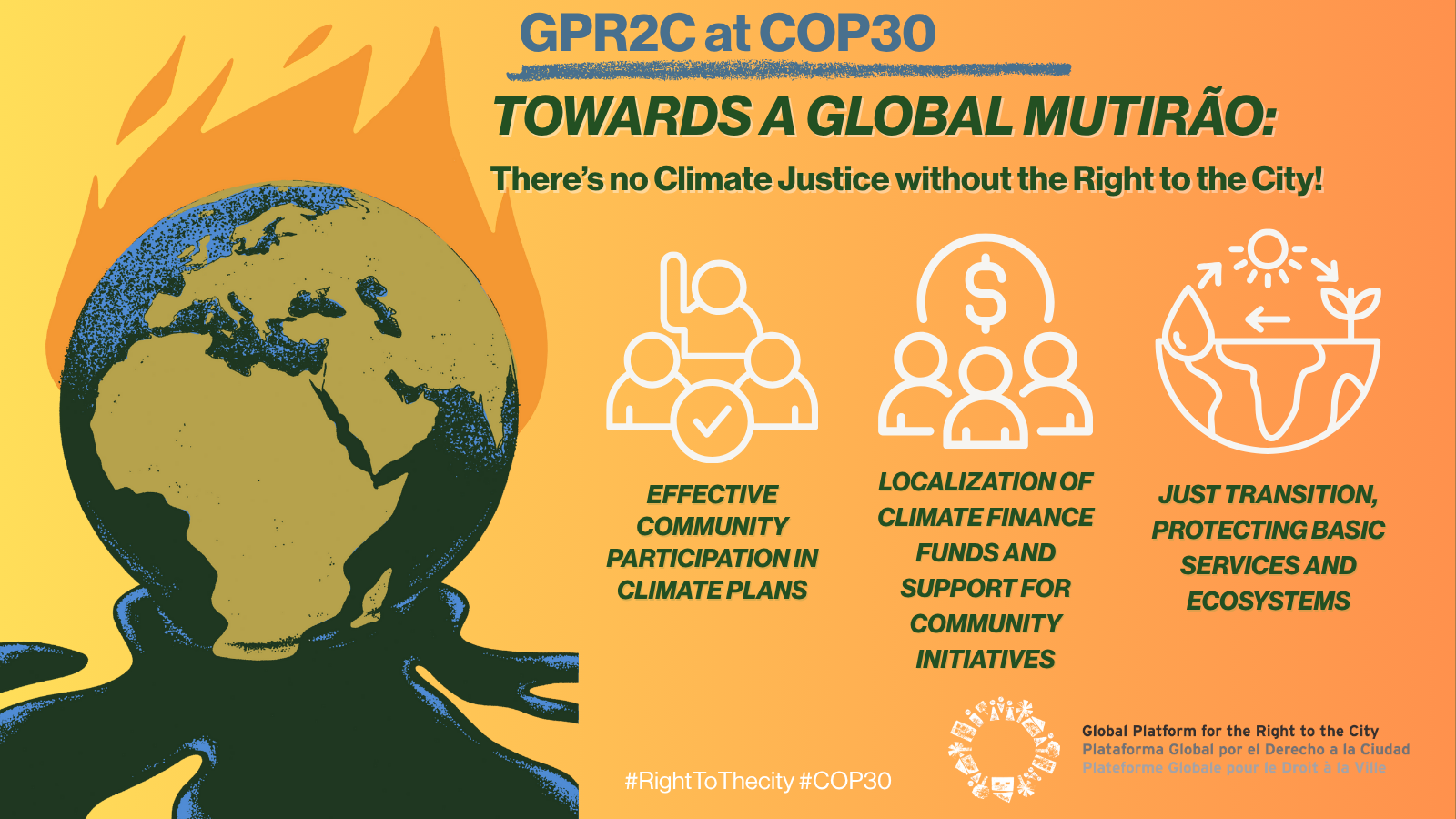The Right
to the City
The Right to the City is the right of all inhabitants, present and future, permanent and temporary, to inhabit, use, occupy, produce, govern and enjoy just, inclusive, safe and sustainable cities, villages and human settlements, defined as commons essential to a full and decent life.
Last campaigns
The right to the city in depth
No discrimination
A city/human settlement free of discrimination based on gender, age, health status, income, nationality, ethnicity, migratory condition, or political, religious or sexual orientation. A city/human settlement that embraces minorities and ethnic, racial, sexual, and cultural diversity, which respects, protects, and promotes all non-discriminatory customs, memories, identities, languages, and artistic and cultural expressions of its inhabitants.
+Inclusive citizenship
A city/human settlement of inclusive citizenship in which all inhabitants, (whether permanent or temporary) are considered as citizens and granted equal (e.g. women, those living in poverty or situations of environmental risk, informal economy workers, ethnic and religious groups, LGBT persons, people with disabilities, children, youth, the elderly, migrants, refugees, street dwellers, victims of violence and indigenous peoples).
+Diverse and inclusive economies
A city/human settlement with diverse and inclusive economies that safeguards and ensures access to secure livelihoods and decent work for all inhabitants, gives room to other economies (e.g. social and solidarity economy, sharing economy), recognizes the domestic care and community work developed largely by women and ensures the full development of women and girls.
+Enhanced political participation
A human settlement with enhanced political participation in the definition, implementation, monitoring, and budgeting of urban policies and spatial planning in order to strengthen the transparency, effectiveness and inclusion of the diversity of inhabitants and their organizations.
+Gender equality
A city/human settlement of gender equality, which adopts all necessary measures to combat discrimination in all its forms against women and girls; a city/human settlement which takes all appropriate measures to ensure the full development of women and girls, guarantee them equality in the exercise and fulfillment of human rights, and a life free of violence.
+Quality public spaces and services
A city/human settlement with quality public spaces and services that enhance social interactions and political participation, promote sociocultural expressions, embrace diversity, and foster social cohesion; a city/human settlement where public spaces and services contribute to building safer cities (especially for women and girls) and to meeting the needs of its inhabitants (especially those related to livelihoods).
+Inclusive rural / urban linkages
A sustainable city/human settlement with inclusive rural-urban linkages that benefit poor people, both in rural and urban areas, and ensures food sovereignty; a city/human settlement that protects biodiversity, natural habitats, and surrounding ecosystems.
+Climate Justice
Justice that links development and human rights to achieve a human-centred approach to addressing climate change, safeguarding the rights of the most vulnerable people and sharing the burdens and benefits of climate change and its impacts equitably and fairly.
+Commons
Understood at the same time as resources (material or immaterial) and social practices, the commons are at the core of the innovative right to the city and the municipalist movements and agendas. As a strategy, commoning provides a concrete tool for putting the social and environmental function over accumulation, privatization and speculation (through, for example, community land trusts and cooperatives), ensuring equal access and benefit to all. At the same time, it represents a productive opportunity to experiment with new forms of public-community collaboration (service provision, cultural facilities, etc.).
+Care
Care work refers to the activities that ensure the reproduction and sustaining of life. This encompasses care-giving for those that require specific care, but also day-to-day activities that are carried out on the domestic level and that ensure the sustaining of life in adequate conditions, such as cooking and cleaning.
+News
 2025: a summary of our yearCampaigns Posted in: Care, Climate Justice, Diverse and inclusive economies- GPR2C Summary of 2025: Towards a global mutirão and caring cities! Dear friends, 2025 was marked by the intensification of the work of the Global Platform for the Right to the City (GPR2C) on two strategic fronts: Climate Justice and Care. With great expectations from social movements, the year unfolded around preparations for our participation… +
2025: a summary of our yearCampaigns Posted in: Care, Climate Justice, Diverse and inclusive economies- GPR2C Summary of 2025: Towards a global mutirão and caring cities! Dear friends, 2025 was marked by the intensification of the work of the Global Platform for the Right to the City (GPR2C) on two strategic fronts: Climate Justice and Care. With great expectations from social movements, the year unfolded around preparations for our participation… + The GPR2C’s work on the Right to the City and CareCampaigns Posted in: Care, Climate Justice, Diverse and inclusive economies, Enhanced political participation, Gender equality- The GPR2C has defined “Care" as one of its strategic priorities for action in the period from 2023 to 2026. For the municipal movement, care is much more than just social policy, it is part of a fundamental political vision to transform the way we govern, plan and live together. Care is recognized as the… +
The GPR2C’s work on the Right to the City and CareCampaigns Posted in: Care, Climate Justice, Diverse and inclusive economies, Enhanced political participation, Gender equality- The GPR2C has defined “Care" as one of its strategic priorities for action in the period from 2023 to 2026. For the municipal movement, care is much more than just social policy, it is part of a fundamental political vision to transform the way we govern, plan and live together. Care is recognized as the… + The GPR2C at COP30: a review - The Global Platform for the Right to the City (GPR2C) took to COP30 the vision that there is no Climate Justice without the Right to the City. The first climate conference to be held in Brazil took place from November 10 to 21, 2025, but preparations for our arrival in Belém do Pará began much… +
The GPR2C at COP30: a review - The Global Platform for the Right to the City (GPR2C) took to COP30 the vision that there is no Climate Justice without the Right to the City. The first climate conference to be held in Brazil took place from November 10 to 21, 2025, but preparations for our arrival in Belém do Pará began much… +



